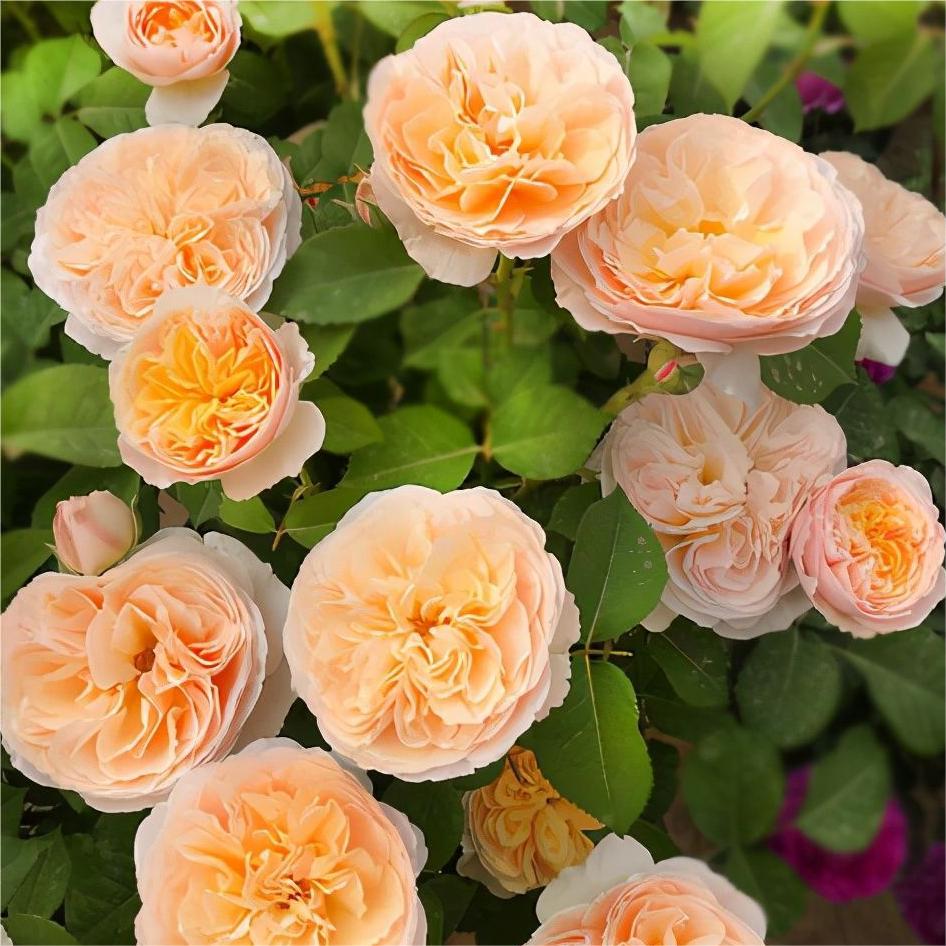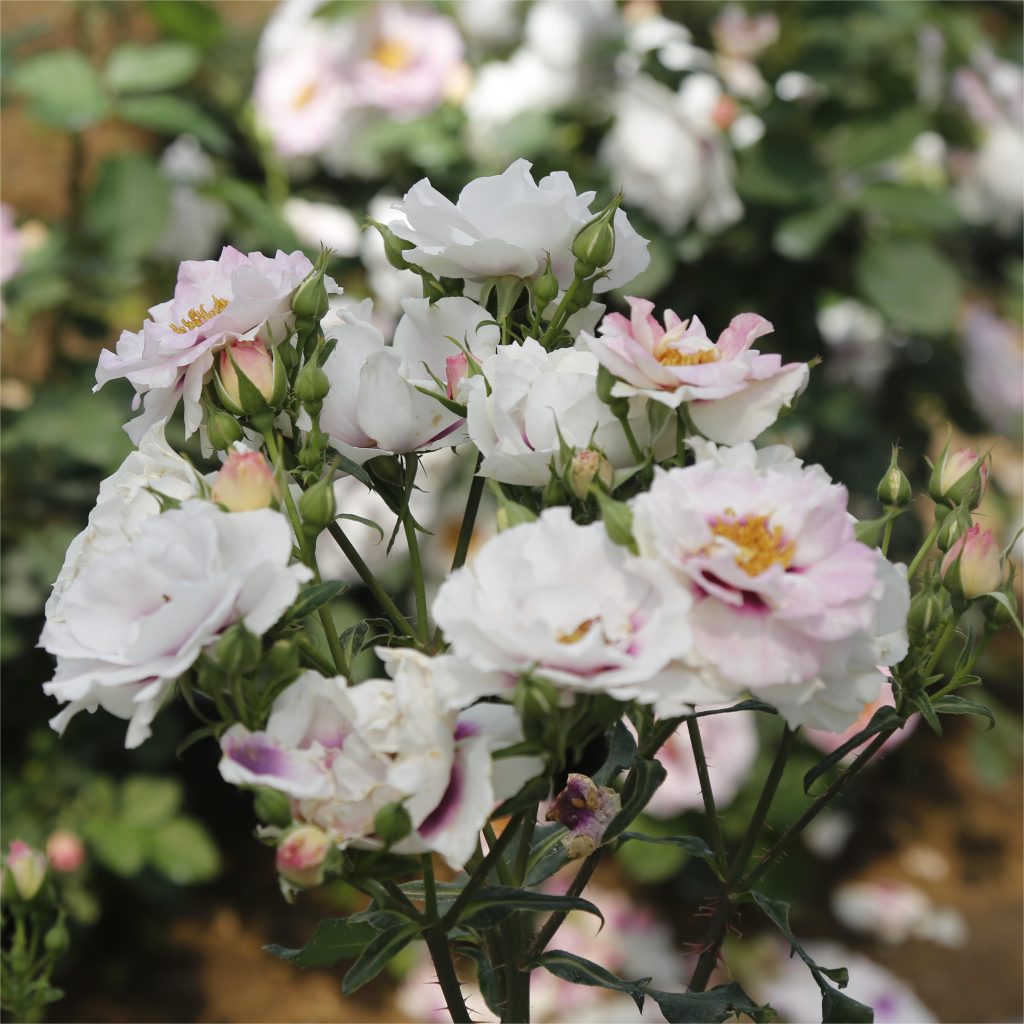Author Introduction:
Write by ANHUI FUYANG JINFENG ECOAGRICULTURE CO.,LTD., where gardening expertise meets premium quality plants and trees! With over 30 years of experience, we’ve cultivated a reputation as specialists in providing top-notch flora for all your gardening needs. What began with a few humble plastic greenhouses has blossomed into a sprawling operation spanning about 300 acres.

Roses have captivated hearts and minds for centuries, serving not only as beautiful flowers but also as powerful symbols across various cultures. In this blog, we will explore the rich history of roses and delve into some significant myths that underline their symbolic meanings.
The History of Roses
Ancient Civilizations: The history of roses dates back over 5,000 years. In ancient Egypt, roses were associated with beauty and love, often used in religious ceremonies and funerals. They were linked to the goddess Isis, symbolizing life and death.
Greek and Roman Influence: In Greek mythology, roses were closely tied to Aphrodite, the goddess of love. It is said that red roses bloomed from her tears and the blood of her lover, Adonis. The Romans adopted this symbolism, using roses in weddings and festivals, reinforcing their association with love and celebration.
Medieval Symbolism: During the Middle Ages, roses took on deeper meanings within Christianity. The red rose represented Christ's sacrifice, while the white rose symbolized purity and the Virgin Mary. This duality made roses a common motif in art and literature of the time.
Renaissance and Beyond: The Renaissance period saw a resurgence of interest in classical themes, with roses appearing in poetry and art as symbols of romantic love. Writers like Shakespeare frequently referenced roses to capture the essence of love's beauty and transience.
Symbolic Meanings of Roses
-
The Classic Red Rose: Love and Passion
The red rose is perhaps the most iconic symbol of love and romance. Traditionally given on Valentine's Day or anniversaries, its deep red hue signifies passionate love and desire. The cultural significance of the red rose dates back to ancient times, often associated with Venus, the Roman goddess of love. Whether given as a single stem or a bouquet, red roses express profound affection and devotion.
-
The Elegant White Rose: Purity and New Beginnings
White roses symbolize purity, innocence, and new beginnings. They are often used in weddings to represent the purity of the bride and the fresh start of married life. Additionally, white roses are commonly associated with remembrance, making them a thoughtful choice for funerals or memorials, symbolizing eternal love and respect for those who have passed.
-
The Cheerful Yellow Rose: Friendship and Joy
Yellow roses bring a sense of warmth and happiness, symbolizing friendship, joy, and new beginnings. Unlike other colors, yellow roses can convey platonic love, making them perfect for celebrating friendships or cheerful occasions. Their bright, sunny appearance brings positivity, making them an excellent gift to lift someone’s spirits.
-
The Romantic Pink Rose: Gratitude and Admiration
Pink roses come in various shades, each carrying its own meaning. Light pink roses represent grace and sweetness, while deeper shades signify gratitude and admiration. Pink roses are versatile and can be gifted on multiple occasions, from expressing thanks to celebrating milestones, making them a favorite choice for many.
-
The Mysterious Black Rose: Death and Mourning
While not as commonly seen, black roses hold a powerful symbolism of death, mourning, and farewell. Often associated with tragic events or endings, black roses can signify the end of something significant, whether it be a relationship or a life chapter. Despite their dark connotation, they can also represent rebirth and new beginnings, reminding us that every ending leads to a new start.
-
The Unique Blue Rose: The Unattainable
Blue roses are often associated with mystery and the unattainable. Since blue roses do not occur naturally, they symbolize the pursuit of the impossible or the desire for something just out of reach. They can also represent uniqueness and individuality, making them a special gift for someone who stands out in your life.
Myths Surrounding Roses
Roses are steeped in mythology, adding to their allure:
Aphrodite and the Red Rose: Greek mythology tells us that red roses sprouted from the ground where Aphrodite’s tears fell, symbolizing eternal love and sacrifice.
Cupid’s Arrows: In Roman mythology, Cupid, the god of desire, would shoot arrows tipped with roses, representing the power of love and attraction.
The Tale of Beauty and the Beast: This famous fairy tale features a single rose that symbolizes the transformative power of love. The rose serves as a reminder that beauty can be found in unexpected places.
The Black Rose Legend: In some folklore, black roses represent tragic love or lost hope. They serve as a poignant reminder of the fragility of love and life.
Conclusion
Roses, with their stunning beauty and profound symbolism, have woven themselves into the fabric of human culture. From their historical roots to their place in mythology, they continue to evoke powerful emotions and convey messages of love, loss, and hope. Whether you are celebrating a joyful occasion or mourning a loss, roses remain a timeless expression of our deepest feelings. So, the next time you encounter a rose, take a moment to appreciate its rich history and the stories it tells.




